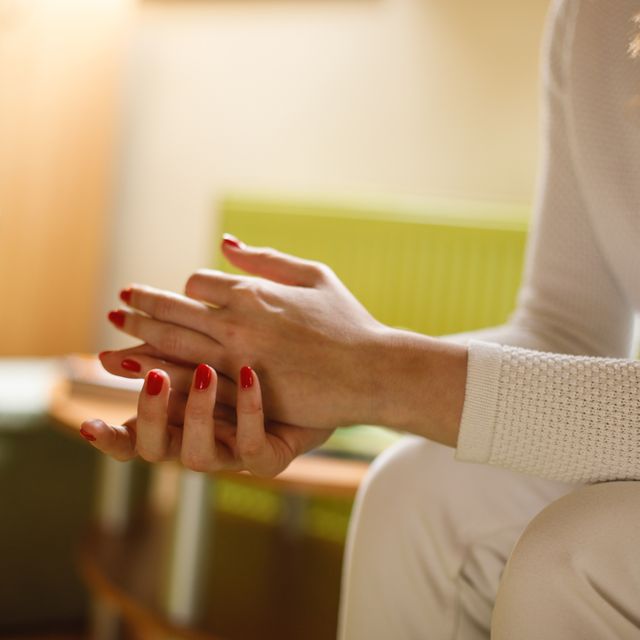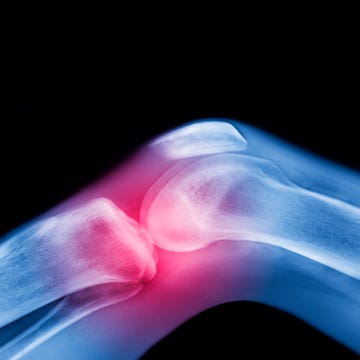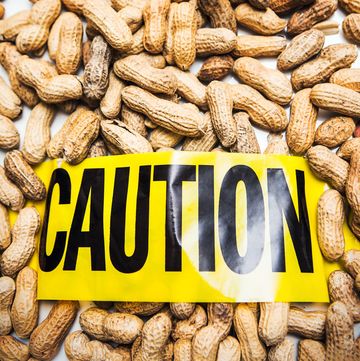This article was medically reviewed by M. Elaine Husni, M.D., M.P.H., of the rheumatologic and immunologic disease department at Cleveland Clinic.
I’ve got my fair share of unconscious habits: running my hands through my hair, tapping my feet, pursing my lips when I’m concentrating—and, of course, cracking my knuckles.
That last one is perhaps the one I’ve had the longest. TBH, I’ve always wondered whether it will come back to bite me at some point. After all, I’ve been told plenty of times that I’ll develop arthritis as a result of my knuckle cracking. And apparently I’m not the only person who’s worried by this idea.
“We’ve been studying this since the 1970s,” says M. Elaine Husni, M.D., M.P.H., who is part of the rheumatologic and immunologic disease department at Cleveland Clinic. “Believe it or not, it’s been a very popular subject to see if people that crack their joints [develop] arthritis.”
But is it true? Below, everything you need to know about whether cracking your knuckles really leads to arthritis.
Why can you crack your knuckles?
First things first: Not everyone can crack their knuckles, Husni says. But if you can, “what you’re referring to is some of the sounds that are made when joints are moving,” she explains. It might sound like a pop or a crack—and everyone’s anatomy is a little bit different, she adds. So what causes those sounds may differ from person to person.
“Sometimes it’s the tendons that are around the joints that actually snap back onto the bone,” Husni says. “Sometimes when people move their joints, they can have air that escapes the joints that makes the pop sound.” She also notes that people with more laxity (read: looseness) in their tendons may hear more of a slapping sound, while others with more laxity in their joints might hear something more like popping.
And as for that “need” to crack your knuckles? (IFYKYK.) Hate to break it to you, but there’s no physiologic reason to keep doing it, Husni says. Cracking your knuckles, she explains, is just like any other continuous habit—kind of like twirling your hair.
So, does cracking your knuckles cause arthritis?
The short answer? Probably not, according to Husni. A study published in 2011 in The Journal of the American Board of Family Medicine found that habitual knuckle cracking did not seem to be a risk factor for hand osteoarthritis. But Husni says cracking your knuckles can lead to other joint issues.
“The term arthritis refers to loss of cartilage where your joint space gets more narrow over time,” she explains. “Eventually, bone meets bone in that joint, and that’s really uncomfortable.” (The symptoms of arthritis include joint pain and stiffness.)
As opposed to actual arthritis, Husni says cracking your knuckles can lead to joint laxity, which can cause pain—and you might mistake that sensation for arthritis. In other words, that’s where this myth comes from.
Now, let’s break down what it means to develop joint laxity. Any time you do things to your joints that are outside their normal range of motion (and cracking your knuckles falls into this category), that can cause the joints to loosen, according to Husni. And the more you do it, the looser your joints are likely to become, and the more permanently your joints stay in a relaxed state.
But a word of caution: “As you get older, there's a higher chance of arthritis in general,” Husni says. So while cracking your knuckles probably doesn’t cause arthritis, you could certainly still wind up with it.
What about when you crack other joints?
There’s something so satisfying about a good back crack. But does that have the potential to produce negative side effects, too?
Cracking your back every now and then probably won’t lead to much joint laxity, according to Husni. And that holds true for other things you might “crack.” (If you’re anything like me, you can elicit popping sounds from all sorts of places, like knees, elbows, and shoulders, along with your knuckles.)
Still, “I really think that everyone has a different threshold for joint laxity,” Husni says. Some people, she explains, are born with more hypermobility than others. Because they have that existing looseness, they need to be a bit more careful. Joint cracking—an extra push outside the joint’s normal range of motion—might cause pain sooner for those individuals.
The Bottom Line
Husni says it’s difficult to make a blanket recommendation around cracking your knuckles that suits everyone. For people with normal joints (think: they aren’t extra loose to begin with), succumbing to the urge to pop them occasionally likely won’t cause problems, she explains. Still, best not to risk it.
“You want your joints to be healthy your whole life, not just until you reach 40 or 50,” Husni says. Just like with anything else you want to last for a long time, she adds, you’ll want to treat your joints appropriately. So, since cracking your knuckles doesn’t *actually* do anything beneficial for you, Husni advises avoiding it.
With that said, habits can be hard to break, and it’s understandable if putting an end to your knuckle cracking is easier said than done. To help with that goal, many of Husni’s patients have found a replacement for cracking their knuckles, like tapping their knees whenever they get the urge to do it. So, perhaps this is a good time to bust out those fidget spinners you collected a few years back—and do your best to put a stop to the pop.
Erin Warwood is a San Francisco-based writer, runner, and sparkling water enthusiast. She holds a B.B.A. from the University of Notre Dame and an M.S. in journalism from Northwestern University. In her free time, you can find her watching Survivor, trying new Peloton workouts, and reading Emily Giffin novels. Her ultimate goal: become a morning person.













